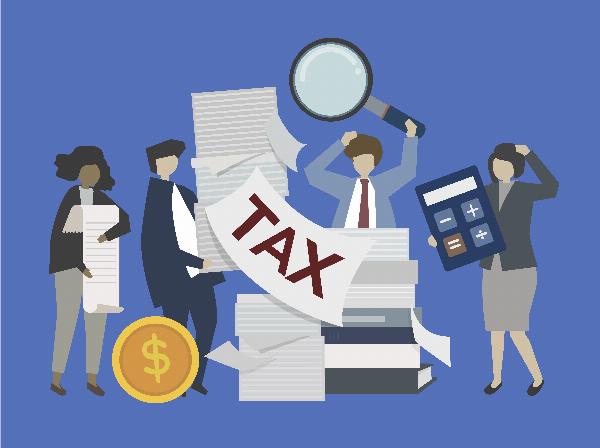 Link Insertions on Real Blogs – Quick Wins for Better Rankings!
Link Insertions on Real Blogs – Quick Wins for Better Rankings!
Effective Employee Interviews: Key Strategies for Making Impactful Hiring Choices
Written by Yash » Updated on: June 17th, 2025

The interview process is critical in hiring the right employees for any organization. It helps employers assess candidates' skills and qualifications and provides insight into their personalities, work ethic, and cultural fit within the company. An effective interview process can significantly impact the quality of hires, leading to a more productive and cohesive workforce. This article will explore key strategies for conducting effective employee interviews to ensure that the best candidates are selected.
Key Strategies to be Taken into Consideration:
1. Preparation: The Foundation of a Successful Interview
Preparation is crucial for both the interviewer and the interviewee. As an interviewer, understanding the role you are hiring for and the specific qualities you are looking for in a candidate is essential. This involves reviewing the job description, understanding the team dynamics, and knowing the company culture. Preparing a set of standardized questions helps maintain interview consistency and ensures that all relevant topics are covered.
Additionally, reviewing the candidate's resume and application materials beforehand allows for more targeted questions and a deeper understanding of their background. This preparation demonstrates professionalism and respect for the candidate's time and effort.
2. Creating a Structured Interview Process
A structured interview ensures that all candidates are evaluated on the same criteria, reducing bias and increasing fairness. This involves using consistent questions and a scoring system to evaluate responses. Structured interviews can include:
- Behavioral Questions: These questions assess how candidates have handled situations in the past, providing insight into their problem-solving abilities and how they might react in similar situations in the future. For example, "Can you describe when you faced a challenging project deadline? How did you manage it?"
- Situational Questions: These questions present hypothetical scenarios to candidates and ask them how they would respond. This helps gauge their critical thinking and decision-making skills. For example, "What would you do if you disagreed with a colleague on a major project decision?"
- Technical Questions: Questions that test the candidate's knowledge and abilities are essential for roles requiring specific technical skills. These can be practical problems or theoretical questions related to the field.
3. Creating a Comfortable Environment
The interview environment can significantly impact a candidate's performance. A comfortable and welcoming setting encourages candidates to be themselves, allowing for a more accurate assessment of their skills and personality. This can be achieved by:
- Starting with a Friendly Introduction: Begin the interview with a warm greeting and a brief overview of the company and the role. This sets a positive tone and helps ease any initial nerves.
- Active Listening: Show genuine interest in the candidate's responses by maintaining eye contact, nodding, and occasionally summarizing what they have said. This demonstrates that you value their input and are fully engaged in the conversation.
- Providing Opportunities for Questions: Encourage candidates to ask questions about the company, team, or role. This not only helps them assess whether the position is a good fit for them but also demonstrates their interest and enthusiasm.
4. Assessing Cultural Fit
While skills and experience are critical, cultural fit is equally important in ensuring long-term success and job satisfaction. During the interview, assess how well a candidate aligns with the company's values, work style, and team dynamics. Some ways to gauge cultural fit include:
- Discussing Company Values: Share the company's mission and values with the candidate and ask how they resonate with them. This can provide insight into their alignment with the company's culture.
- Teamwork and Collaboration Questions: Ask how candidates work with others, handle conflicts, and contribute to a team's success. For example, "Can you describe a time when you worked in a team to achieve a common goal? What was your role, and how did you contribute?"
- Observing Non-verbal Cues: Pay attention to body language and communication style. These can provide clues about a candidate's confidence, enthusiasm, and ability to fit into the company's social environment.
5. Utilizing Multiple Interviewers
Involving multiple interviewers in the hiring process provides a well-rounded perspective on each candidate. Interviewers may focus on various aspects, such as technical skills, cultural fit, or problem-solving abilities. This approach helps reduce individual biases and ensures a more comprehensive evaluation.
After the interviews, gather feedback from all interviewers to make a more informed decision. Discussing different viewpoints can help highlight strengths and weaknesses that might have yet to be apparent to a single interviewer.
6. Avoiding Common Interview Pitfalls
Several common pitfalls in the interview process can lead to poor hiring decisions. Being aware of these and taking steps to avoid them can significantly improve the quality of hires. Some common pitfalls include:
- Halo Effect: Allowing one positive attribute to influence the overall impression of a candidate. For example, a candidate with excellent communication skills might be perceived as more competent in other areas without proper evidence.
- Confirmation Bias: Seeking information that confirms pre-existing beliefs about a candidate while disregarding contradictory evidence. This can lead to overlooking red flags or overemphasizing positive aspects.
- Overemphasis on First Impressions: First impressions can be misleading. While important, they should not be the sole basis for a hiring decision. It's crucial to consider the entire interview and all relevant data.
7. Evaluating the Candidate's Potential
Beyond assessing current skills and experience, evaluating a candidate's potential for growth and development is essential. This is particularly important for roles that require continuous learning and adaptation. Consider the following:
- Willingness to Learn: Ask about experiences where the candidate had to learn new skills or adapt to changes. For example, "Can you tell us when you had to quickly learn a new tool or technology? How did you approach it?"
- Career Goals: Understanding a candidate's long-term career goals can help assess whether the role aligns with their aspirations and whether they are likely to stay with the company.
- Flexibility and Adaptability: The ability to adapt is crucial in a rapidly changing business environment. Ask candidates questions about their past experiences to assess how they handle change and uncertainty.
8. Providing Constructive Feedback
Whether candidates are selected or not, feedback is a professional courtesy that reflects positively on the company. Constructive feedback helps candidates improve and leaves a positive impression of the company, even if they are not offered the position. When providing feedback:
- Be Specific: Highlight areas where the candidate excelled and areas for improvement. For example, "We were impressed with your technical knowledge, but we believe you could strengthen your project management skills."
- Be Professional and Respectful: Maintain a positive and respectful tone, focusing on constructive criticism rather than negative remarks.
- Encourage Future Applications: If candidates are not selected but show potential, encourage them to apply for future opportunities. This helps build a talent pipeline for the company.
9. Extending the Offer
Once the final decision is made, promptly extending the offer is crucial to securing the top candidate. The offer should be formalized in an interview call letter outlining the terms and conditions of employment, including salary, benefits, and other relevant details. Ensure the letter is clear, professional, and aligns with any verbal discussions during the interview process.
Conclusion
Conducting effective employee interviews is a vital aspect of the hiring process. Employers can make more informed and impactful hiring choices by preparing thoroughly, creating a structured and comfortable interview environment, assessing cultural fit, and avoiding common pitfalls. Evaluating candidates' current capabilities and future potential ensures that the right individuals are selected for the role, contributing to the overall success and growth of the organization. Remember, the interview process is not just about selecting the best candidate; it's also an opportunity to showcase the company's values and culture, leaving a positive impression on all candidates.
Note: IndiBlogHub features both user-submitted and editorial content. We do not verify third-party contributions. Read our Disclaimer and Privacy Policyfor details.
Copyright © 2019-2025 IndiBlogHub.com. All rights reserved. Hosted on DigitalOcean for fast, reliable performance.














